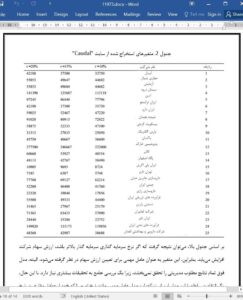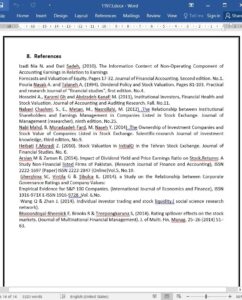Abstract
One of the most significant issues in investment management is stock valuation. Investors and shareholders can value their own shares based on stock valuation models and make decisions on stock trading accordingly. This study attempts to examine the relationship between stock valuation and a company's management. In this regard, the present study uses field and library research methods, and examines 25 companies listed in Tehran Stock Exchange from the years 2009 to 2013 along with 125 observations. The results of this study suggest that managers’ success in stock valuation primarily depends on the correct understanding of influential resources and it is recommended that managers increase the value of their company’s stock by the prober use and combination of factors effective in stock valuation according to the information of the company.
1. Introduction
Today, one of the most controversial issues in economic communities is the issue of stock valuation. Since it is carried out by major managers and shareholders of companies, it motivates them to conduct stock valuation with different types of models.
In order to develop an economic model for stock valuation, managers should have a correct understanding of the influential resources which itself is a key factor in a company’s success in stock valuation. Therefore, these questions arise first: “what kind of relationship is there between stock valuation and corporate management?” “Is this relationship influenced by the resources?” In this study, only the models and viewpoints raised at the level of theory are discussed using financial statements.
7. Conclusion
The issue of stock valuation for attracting investors and achieving management success is of great importance since they can value their stock based on the proposed models in stock valuation and make decisions on its trading. In this article, the valuation models of Gordon and Walter have been examined. The investigation of these models indicate that the conditions of industry, company, supply and demand for the company's products, domestic and global market, the productivity achieved by the current financial activities of company ,technology, and company’s life, new product pricing, competitive status and company’s risk-taking in valuation should be taken into account. However, each of these current model has some shortcomings and drawbacks, therefore, they cannot be used with 100% confidence level because there are some varying hidden factors such as economic factors (inflation) which have not been investigated in these models. According to the theoretical issues in the factors affecting stock valuation,










